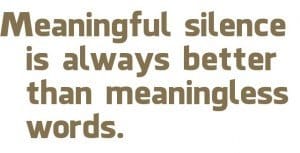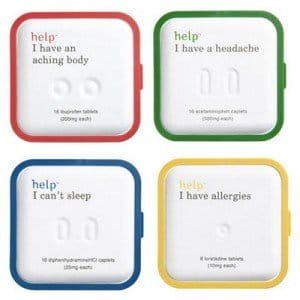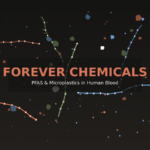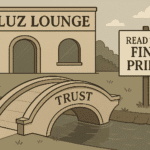Words of sound and fury signifying nothing. Let’s ditch these meaningless placeholder words and say something useful! It’s been a while since I have been writing but let’s start to change that.
“I would have written a shorter letter, but I did not have the time.” – Blaise Pascal
The Importance of Clear Communication in Writing
Truthfully, I woke up today and really planned ahead of time on writing, like, an awesome, interesting, intriguing, extremely freaking amazing essay for you that talked, first of all, about all the ways we don’t say very much sometimes when we’re trying to say quite a lot about something. Here’s the thing, though, and to be completely honest and frank and transparent with you, let me say that I think it’s very hard to write something that’s really, essentially, truly unique, you know?
Then I decided to write something useful. Something carved into clarity. Straightforward. Simple. Which meant I should have sliced that first paragraph down to about six words.
But I purposely littered that paragraph with needless words whose meanings amount to nearly nothing. I wanted to make a point about how we communicate, or don’t, in a time where we have more ways to communicate, at greater velocity and volume, than ever. And when we communicate badly, we are costing ourselves and our companies money.
“Brevity is the soul of wit.” -William Shakespeare
I have a friend who regularly hosts and then edits audio podcasts. He says there’s little more horrifying than listening to your own words as you prepare to publicly share them or similar outlet. You quickly notice the constant verbal tics and tricks, the placeholder terms, the “ums” and “ahs,” the unnecessary and nonsense words that kludge up a conversation
The good news: with a podcast, you can edit (most of) them out before committing them to posterity. The bad news: it’s a lot harder to edit yourself while talking or even, for many, while writing. Glibness, it turns out, is a gift, given to too few.
At least when you’re talking, however, you have a small excuse for the filler phrases and time-buying terms. Sometimes your brain has to catch up with your mouth, all the while fighting the compulsion to not leave your listener hanging, waiting for that next word while you figure out what it should be.
Even in this case, though, the experts suggest we would do better to leave a considered and thoughtful pause as we build our thoughts than just inserting “like” or “um” every few words.
But this approach requires being present, actively thinking about your words and the way you present them, even as you’re doing it. It’s a useful discipline too seldom embraced.
“One always speaks badly when we have nothing to say.” Voltaire
I’ve created a list of words I would banish from the English language, with suggestions for replacements (often nothing at all). You can find many more such suggestions in classic books on writing such as Strunk & White’s “Elements of Style,” or H.W. Fowler’s “A Dictionary of Modern English Usage.” Even though these books are decades old, they still hold useful wisdom.
So why do I care so much about clear communication? In my company, RampRate, we regularly carve down our clients’ contracts, which are nothing more than a complicated kind of communication, into something clear, useful and enforceable. We can take a 200-page contract of blather and legalese and boil it to a spare and straightforward 10, while ensuring both sides get what they want.
By focusing on clearer language, we reduce misunderstanding, disagreement and legal claims, while creating more accountability and measurable performance requirements. It’s an easy example of the benefits of clear communication.
But getting to the guts of your message matters in many other situations, too. When we write to each other in text messages, some say there’s no time for punctuation, spelling and other niceties. Just punch it out and move on, except when that punchy response confuses the reader, and you spend the next 10 minutes clarifying your first message. Taking the time to say it right can save a lot of annoyance later.
Companies spend a lot of money on communications, especially about their brands, though often they seem to regard their brand mostly as an opportunity to raise prices. I believe they should be thinking about using their brand to lower their cost of distribution. I would point to the forthrightly named “Help, I Have a Stuffy Nose” cold medicine and other over-the-counter drugs from Help Industries.
The simple brand name distills a massive shelf of products into a simple offering that helps people understand what they’re buying. The company not only charges less for its products, it tweaks the more-more-more ethos of Big Pharma with product pamphlets that urge users to “Take Less.” Who else does that?
When we write, and talk, we should be driving the obfuscation and blather from our sentences. I think of people such as my friends Rob Tercek and Ralph Simon, and my partner Alex Veytsel, who seem to specialize in concise, thoughtful and clear language.
Perhaps the quality of a person may be tied to how few of these people there are in the world. Certainly, they understand that the way you talk can affect the way you make money. When I was given media training, I was told that a CEO bumbling through a Bloomberg interview might cost his company $1 million in lost sales for every “um,” “you know” or “like.”
Words like this suggest, the trainers told me, that you’re not confident in what you say. And if you’re not confident, why should a customer be? Being precise and economical in how we talk and write indeed requires a golden tongue, and a golden pen. We should use them more often.
“Say what you have to say and the first time you come to a sentence with a grammatical ending–sit down.” – Winston Churchill












